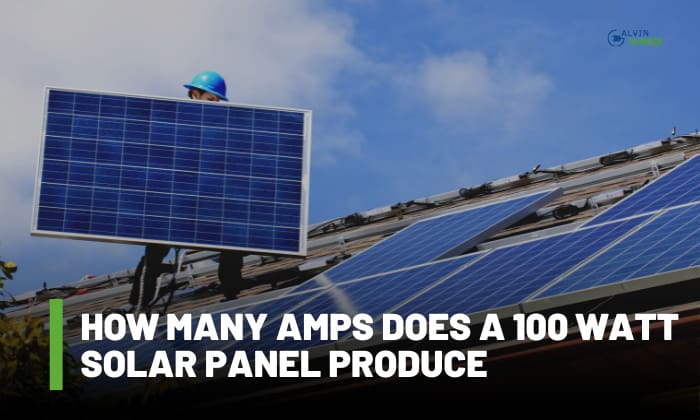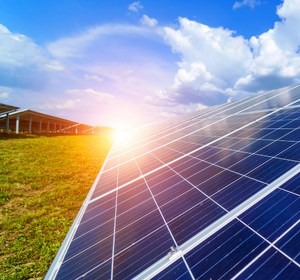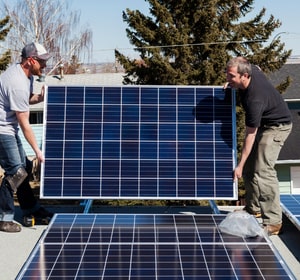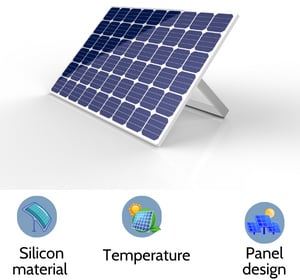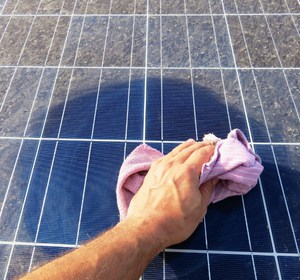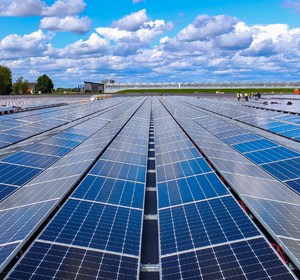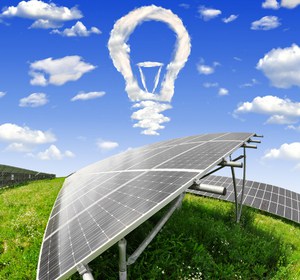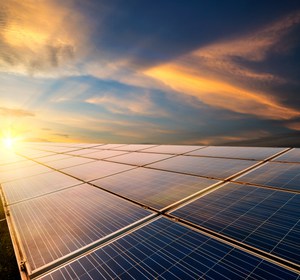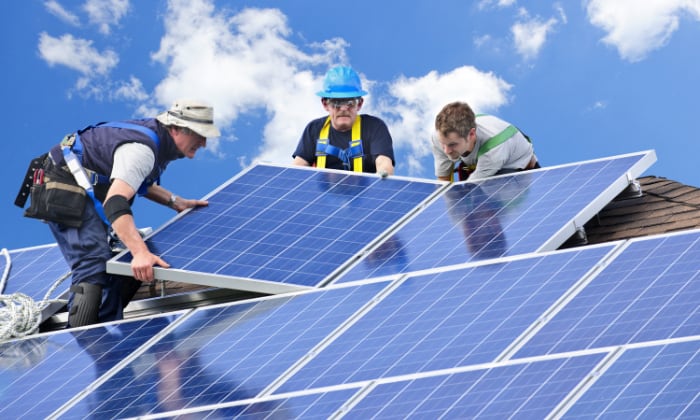Solar panels are an off-grid solution to power your appliances. They are popular renewable alternatives that convert free solar energy into useful electricity.
These panels come in different varieties, depending on your needs. A mid-sized 100 watt model can be used to power some appliances. But how many amps does a 100 watt solar panel produce? A single panel can generate a maximum of 8.3 amps, assuming 100% efficiency in operation.
Table of Contents
Current Output of 100-Watt Solar Panel
The maximum current output of a 12 volt 100 watt solar panel is 8.3 amps. A 24 volt one can generate up to 4.2 amps. Here is a table that estimates the current output of these devices:
| % output | 12 volt panel amps | 24 volt panel amps |
| 100% | 8.3 | 4.2 |
| 90% | 7.5 | 3.8 |
| 80% | 6.7 | 3.3 |
| 70% | 5.8 | 2.9 |
| 60% | 5.0 | 2.5 |
| 50% | 4.2 | 2.1 |
| 40% | 3.3 | 1.7 |
| 30% | 2.5 | 1.3 |
| 20% | 1.7 | 0.8 |
| 10% | 0.8 | 0.4 |
However, a more useful unit to use when estimating the energy appliances use is kilowatt-hour. A 100 watt solar panel can produce up to 800 watt-hours of energy in a day, or 0.8 kWh for 10 hours of sun exposure, and 24 kWh a month.
A single 100 watt solar panel can be useful for small equipment like laptops. Multiple panels of this size are needed for larger appliances like refrigerators.
Factors that Affect Solar Panel Amp Output
1. Sunlight exposure
The longer the panels are out in the sun, the more output it can produce. Direct sunlight helps generate electrical charge to power appliances. Some factors, though, may decrease solar panel’s output:
- Shade or cloud cover
- Orientation or inclination (south-facing panels get more sun.)
- Seasons with less sunlight like winter
2. Solar cell count
More solar cells will increase how much power a panel has. 36 cells are used in a solar panel for 100 watts of power, while a 300 watt solar panel may have 60 cells.
3. Solar panel efficiency
Solar panels can convert 15%-20% of incoming solar energy to electricity. The efficiency is also affected by some factors:
- Silicon material – Monocrystalline silicon is more efficient than polycrystalline silicon.
- Temperature – Solar panels work best at 25 degrees Celsius.
- Panel design – Configuration of the solar cells and the protective back sheet’s color can also affect the efficiency (blue and green are preferable).
Calculating the Amperage Production in 100 Watt Solar Panels
The maximum current a 100 watt solar panel put out can be computed using:
\[ \text{Current produced (amps)} = \frac{\text{Power rating (watts)}}{\text{voltage (volts)}} \]
A 12 volt 100 watt solar panel will produce:
\[
\text{Current produced (amps)} = \frac{\text{Power rating (watts)}}{\text{voltage (volts)}} = \frac{100 \text{ watts}}{12 \text{ volts}} = 8.3 \text{ amps}
\]
A 24 volt 100 watt solar panel will produce:
\[
\text{Current produced (amps)} = \frac{\text{Power rating (watts)}}{\text{voltage (volts)}} = \frac{100 \text{ watts}}{24 \text{ volts}} = 4.2 \text{ amps}
\]
If we want to know how many 100 watt panels are necessary to run appliances, we need to know the energy needs of the device. We can use:
\[ \text{number of panels} = \frac{\text{Monthly kWh of appliance}}{\text{Monthly kWh of panel}} \]
If we have a refrigerator that uses 100 kWh of energy monthly, then the number of 100 watt solar panels we need would be:
\[
\text{number of panels} = \frac{\text{Monthly kWh of appliance}}{\text{Monthly kWh of panel}} = \frac{100 \text{ kWh}}{24 \text{ kWh}} = 4.2
\]
This means we would need 4-5 solar panels to run a refrigerator.
Optimizing Efficiency for Maximum Output
1. Clean your solar panels.
Solar panels should be clear of dust buildup and other debris. This ensures that sunlight reaches the solar cells.
2. Maintain airflow on solar panels.
Most solar panels are placed on rooftops that can get very hot, and extreme temperatures might reduce the efficiency of solar cells. Clear out debris on the roof to maintain airflow on the solar panels.
3. Monitor your solar system
If you use your 100 watt panel as part of your solar energy system, you can monitor the output of your setup per hour using apps. This helps you plan your electrical consumption.
4. Use solar batteries if you have a solar system.
Storing the excess energy produced by your panels is a great way to maximize your green energy use. At night, you can rely on the batteries and continue to save money.
5. Place the solar panels under direct sunlight.
Trim trees to prevent any shade from getting on your solar panel. Place them on south-facing roofs if possible.
Frequently Asked Questions
What will a 100 watt solar panel run?
A single 100 watt solar panel can power up small equipment like laptops, lights, and other electronic devices. More solar panels can run larger appliances.
Cana 100 watt solar panel run a TV?
Yes, a single panel can, as long as the TV does not exceed 100 watts. A modern TV has an average power of 59 watts, and if you have a solar battery, you can save the excess energy generated during the day to watch television during the late hours.
If the TV demands more power, then use more 100 watt solar panels.
Conclusion
A 100 watt solar panel can generate moderate amounts of current and energy. It’s one of the easiest ways to tap into nature’s free energy resources. A single panel can help run small appliances, but multiple panels can power larger ones.
While several factors can affect how many amps does a 100 watt solar panel produce, the use of solar batteries, direct sunlight conditions, and airflow, among others can optimize the output of solar panels.

I am Edwin Jones, in charge of designing content for Galvinpower. I aspire to use my experiences in marketing to create reliable and necessary information to help our readers. It has been fun to work with Andrew and apply his incredible knowledge to our content.

